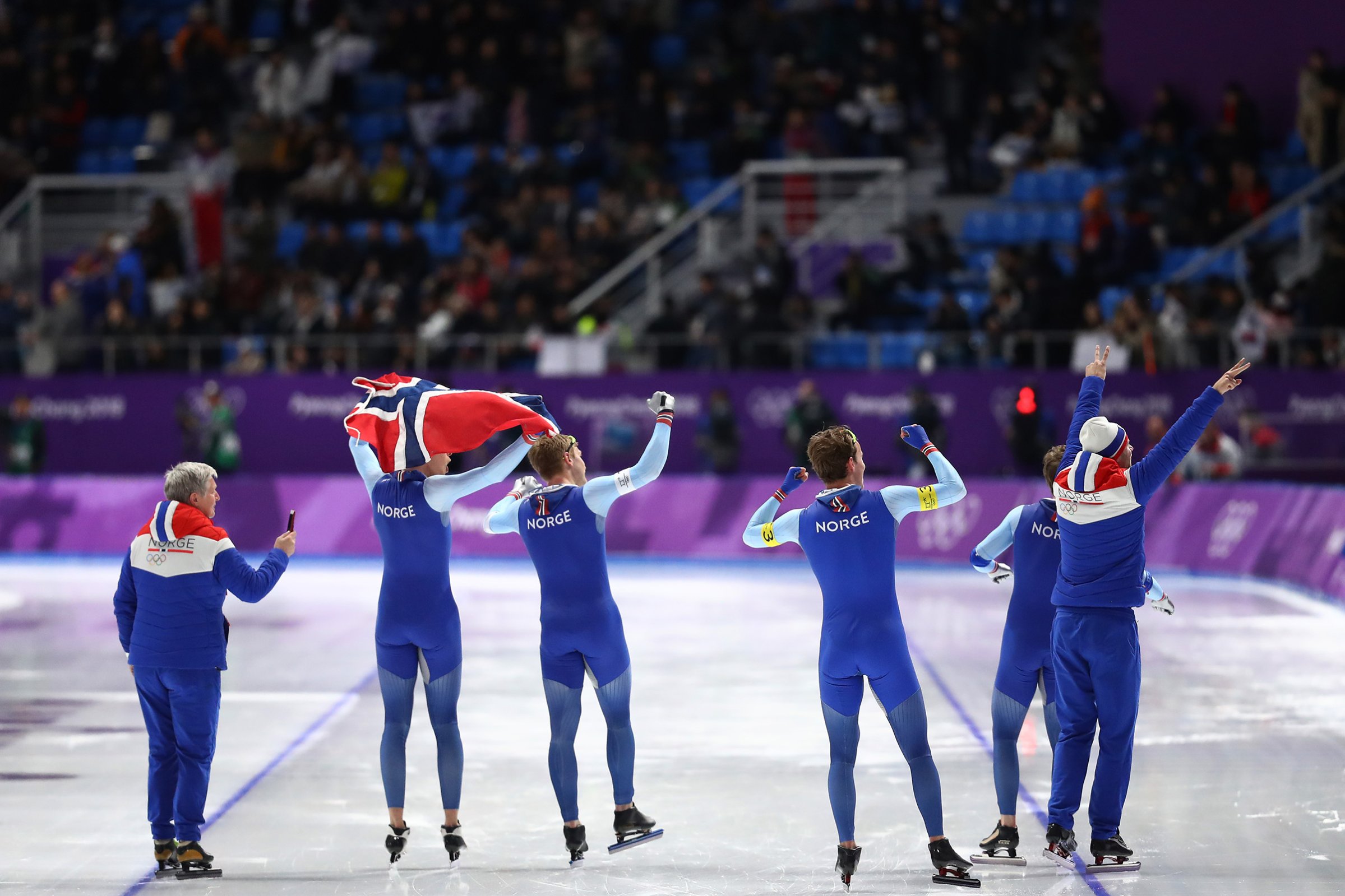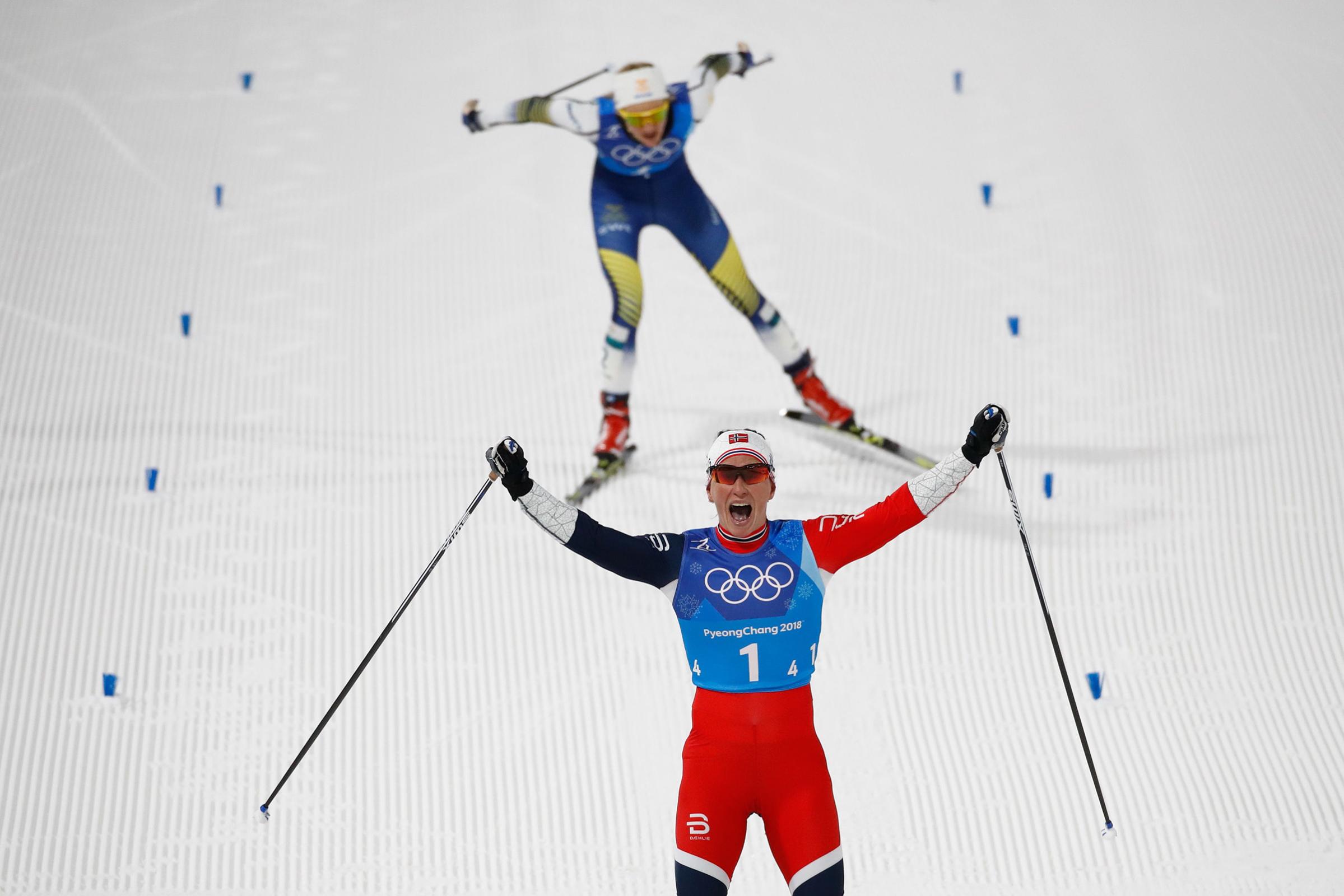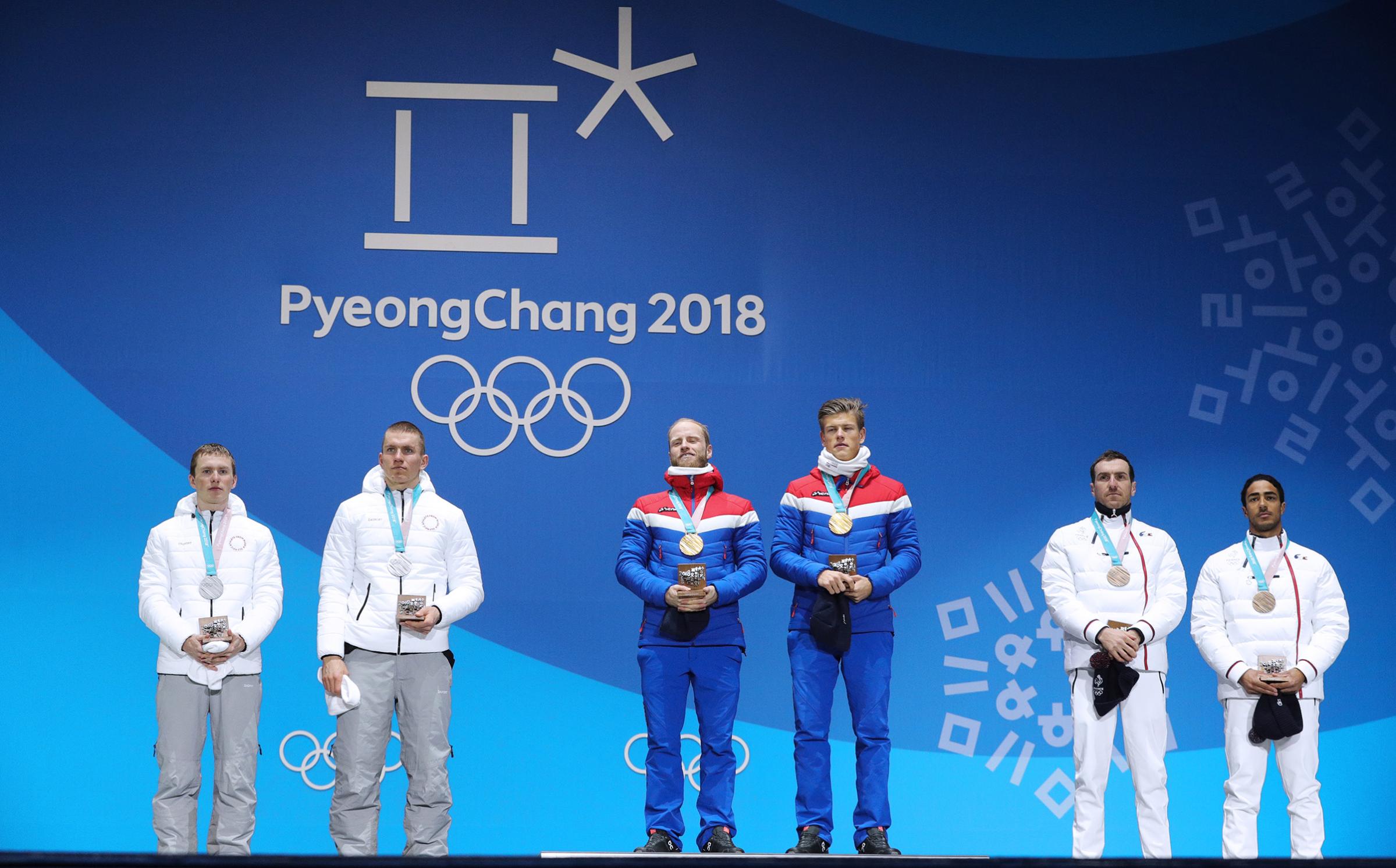
Tore Ovrebo can be forgiven for having a little swagger as the 2018 Winter Olympic Games near their end in PyeongChang. Well, as much as swagger as is acceptable for a Norwegian. Ovrebo is the director of elite sport for the Olympiatoppen, an organization of scientists, trainers and nutritionists who work with Olympic athletes across Norway’s sports federations. And Norway is crushing the Winter Olympics. As of Sunday Feb. 25, Norway has far more medals than any other country at the Winter Games, with 38 total medals. Germany is second, with 30 medals.The United States is currently fourth, with 23 Olympic medals.
Norway’s final medal tally breaks the record for a single nation at a Winter Olympics set by the U.S. at Vancouver in 2010.
Norway’s Olympic success is all the more impressive when you consider the team’s size. While the U.S. sent 242 athletes — the most in Winter Olympic history — to PyeongChang, Norway sent just 109. A team with less than half of America’s Olympic workforce won almost twice the number of medals.
Ovrebo’s contract running the Olympiatoppen, which is funded by Norway’s national lottery, is up soon. “I will probably keep my job,” he says Ovrebo when we met recently at the speedskating venue in Gangneung. “Though you shouldn’t quote me on that.”

So what, exactly, is Norway’s Olympics secret (besides crazy curling pants)?
Ovrebo went out of his way to explain he didn’t want to come across as giving anyone, lest the United States, any advice. “I am not a tiny gorilla beating my chest telling you what to do because it’s not my position,” he says. “We do it this way, others do it another way.” He also admits Norway is blessed with many advantages for Winter Olympics dominance, like snow, a history of excellence in sports like biathlon and cross-country skiing, and free health care, which helps keep young athletic talent in good shape.
But a distinctly Norweigan rule for their youth sports may strike a particular chord with many Americans. (This one included: I’m a youth sports parent, and wrote a TIME cover story on the booming kid sports industry last summer).
Ovrebo says that in Norway, organized youth sports teams cannot keep score until they are 13. “We want to leave the kids alone,” says Ovrebo. “We want them to play. We want them to develop, and be focused on social skills. They learn a lot from sports. They learn a lot from playing. They learn a lot from not being anxious. They learn a lot from not being counted. They learn a lot from not being judged. And they feel better. And they tend to stay on for longer.”
I tell him that the U.S. operates in the polar opposite fashion. We crown nine-year-old national champions. There won’t be nine-year-old national champs in Norway any time soon.
The system, Norwegian athletes say, can really pay off. “The culture and the environment we grow up in, it’s great for us,” says Norwegian skier Ragnhild Mowinckel, silver medalist in the giant slalom and downhill races in PyeongChang.
Norway has other sports development quirks. Trainers don’t tell athletes how much they weigh. “It’s very dangerous,” says Ovrebo. “They can develop eating disorders.” Olympic athletes don’t receive prize money or bonuses from their federations. “We think prize money turns people into something they shouldn’t be,” says Ovrebo.
Norway also wants high-character performers on its teams. “No jerks,” says Ovrebo.
It seems, I tell Overbo, that Norway values the psychology of sports. “Your mind is where you experience your life, isn’t it?” Ovrebo says.

Norway’s philosophy has paid off. The Norwegian Olympians play cards and charades before their competitions. “We think it’s a good way building the team up, if you have fun with each other,” says Mowinckel. Now that they’re old enough to keep score, the athletes must outdo one another. “Everyone wants to show guys that they can take some medals,” says Martin Johnsrub Sundby, a cross-country skier who won gold in the team sprint event on Wednesday. His teammate, Johannes Hoesflot Klaebo, started celebrating before the finish like, like Usain Bolt.
Perhaps Norway’s Olympics swagger is starting to reach dangerous levels. “It’s a good feeling when there’s cake on the table every night,” says Johannes Thingnes Bo, a biathlete who has won gold and silver medals in PyeongChang. Apparently, Norway’s athletes get treated to dessert every time one of them earns a medal. “That’s why we have four chefs,” says Bo. “One can’t make all that cake.”
More Must-Reads from TIME
- Donald Trump Is TIME's 2024 Person of the Year
- Why We Chose Trump as Person of the Year
- Is Intermittent Fasting Good or Bad for You?
- The 100 Must-Read Books of 2024
- The 20 Best Christmas TV Episodes
- Column: If Optimism Feels Ridiculous Now, Try Hope
- The Future of Climate Action Is Trade Policy
- Merle Bombardieri Is Helping People Make the Baby Decision
Write to Sean Gregory/Gangneung at sean.gregory@time.com